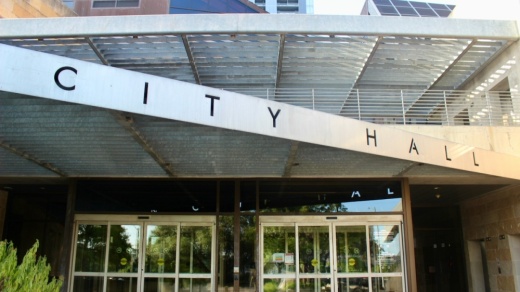For weeks, council members have been looking ahead to the meeting for an in-depth discussion of proposals aimed at alleviating strains related to the city's housing supply and affordability. With a comprehensive rewrite of Austin's land development code—governing what can be built in the city, and where—held up in court, city leaders have pointed to targeted tweaks to development rules and processes as an alternative strategy to broaden housing possibilities and lower costs in Austin.
The work session was first floated in early November by Mayor Steve Adler as a way for council to "refocus" on housing after spending months engaged with issues such as homelessness, policing and pandemic response. Since then, Adler, council members and community advocates have forwarded a range of ideas for consideration at the Nov. 30 meeting and beyond. And ahead of the work session, officials also approved an update to Austin's vertical mixed-use development program and related affordable housing requirements Nov. 18.
Other concepts forwarded by Adler and council members that could come up for discussion next week include:
- amending city code to allow for residential zoning in some commercial areas along with an affordability requirement for a portion of new housing added in those areas;
- expanding workforce housing—affordable spaces near places of business—through city strategies, government incentives and public-private partnerships;
- collaborating with local colleges and universities to grow student housing while opening up more affordable housing for the city as a whole;
- reducing restrictions on accessory dwelling units, or ADUs; and
- loosening parking requirements for new developments.
"[W]e should be trying to find those things that we think have the greatest impact on those two issues [housing supply and affordability] and also have the greatest chance of achieving very broad (9+ votes) support," Adler wrote. "Obviously, we’ll be taking no votes, but this is a chance to see if we can identify issues or actions that make sense to move forward on."
The meeting is also scheduled to include a presentation from city staff about Austin's housing market and the city's lagging progress on decadelong affordability goals.
Input and next steps
In addition to council's own priorities, advocates with local stakeholder groups such as nonprofit HousingWorks Austin and the Austin Board of Realtors have also contributed ideas for consideration this month.
In a letter to city leaders, HousingWorks representatives highlighted affordable housing financing and development improvements as some top priorities. And ABoR recommended changes such as speeding up permitting for single-family and "missing middle" residential construction, cleaning up the language of city development regulations, and a slate of adjustments to code requirements and processes.
With no firm policy decisions set to be made Nov. 30, the timeline for any agreed-upon proposals—and which items council will end up seriously considering for approval—remains to be seen. Several members have pointed to Adler and District 10 Council Member Alison Alter's residential zoning expansion as a point of agreement, making it one likely candidate to progress past this month.
Following the work session, council's Dec. 2 regular meeting could also spark city action related to the local housing stock. A resolution sponsored by Mayor Pro Tem Natasha Harper-Madison would direct city management to launch a study into the cost of building new housing across town and propose ways to make the development process cheaper. That measure, if approved, would see city staff work on the project through 2022.





